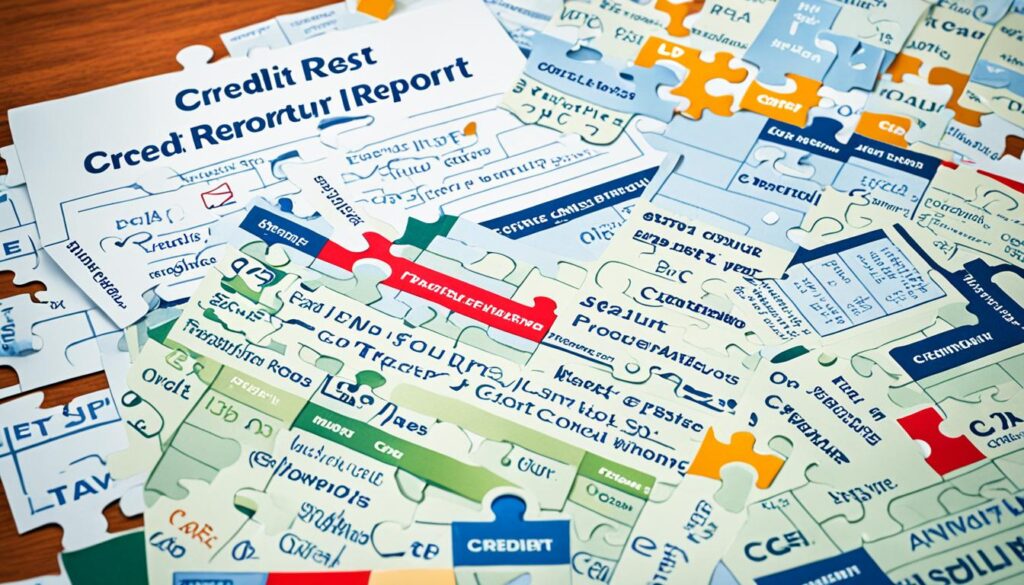Building and maintaining a strong credit score is crucial in today’s financial landscape. While there are many strategies you can implement on your own to improve your credit, seeking professional assistance can often be the most effective approach. Professional credit repair services, credit counseling, and credit monitoring can provide valuable guidance and support to help you navigate the complexities of credit management and achieve your financial goals.
Key Takeaways
- Professional credit repair services can help identify and dispute inaccuracies on your credit report, leading to a faster improvement in your credit score.
- Credit counseling can provide personalized advice on debt management, budgeting, and credit building strategies to help you make informed financial decisions.
- Credit monitoring services can alert you to changes in your credit report, allowing you to address issues promptly and prevent further damage to your credit score.
- Debt management programs offered by credit counseling agencies can help you negotiate with creditors, consolidate payments, and improve your overall credit utilization ratio.
- Comprehensive credit education and guidance from professionals can empower you to take control of your financial future and establish a healthy credit profile.
Make On-Time Payments: The Cornerstone of Credit Score Improvement
When it comes to building and maintaining a healthy credit score, one factor stands out as the most crucial: making on-time payments. Your payment history accounts for a significant 35% of your FICO score, making it the single most important credit score factor.
Prioritize Timely Payments for a Positive Impact
Consistently paying your bills on time sends a strong signal to lenders that you are a responsible borrower. Even a single late payment can have a negative impact on your credit score, which can take time to recover from. By prioritizing on-time payments, you can build a positive payment history that will benefit your credit score in the long run.
Strategies for Staying on Top of Due Dates
- Set up autopay for at least the minimum due amount on your credit card and other bills to ensure you never miss a payment.
- Create calendar reminders to stay on top of your payment due dates and avoid late payments.
- Utilize services like Experian Boost to get credit for eligible non-traditional payments, such as utility bills and streaming subscriptions, which can further improve your payment history.
Remember, while a late payment will remain on your credit report for up to seven years, the negative impact will diminish over time as you consistently pay on time going forward. By prioritizing on-time payments, you can lay the foundation for a strong credit score and unlock better financial opportunities.
“Paying your bills on time is the single most important thing you can do to improve your credit score.”
Reduce Credit Utilization for a Quick Credit Boost
Your credit utilization rate, which compares the amount of credit you’re using to your available credit limit, plays a significant role in your credit score. Experts recommend keeping your credit utilization below 30%, as this can have a swift and substantial impact on improving your credit profile.
To lower your credit utilization, consider the following strategies:
- Prioritize paying down credit card balances. Make a plan to tackle your highest-interest debts first using a debt repayment strategy like the snowball or avalanche method.
- Explore debt consolidation options, such as a personal loan or balance transfer credit card, to simplify your payments and potentially lower your interest rates.
- Utilize a debt management plan, where a credit counseling agency can negotiate with your creditors to reduce interest rates and fees, allowing you to pay off your debt more efficiently.
As you make progress in paying down your credit card balances, you may start to see a noticeable improvement in your credit score within a few months. Maintaining low credit utilization is key to maintaining a healthy credit profile in the long run.
| Credit Utilization | Impact on Credit Score |
|---|---|
| 0-10% | Excellent |
| 11-30% | Good |
| 31-50% | Fair |
| 51% and above | Poor |

“Keeping your credit utilization low is one of the fastest and most effective ways to improve your credit score. Even a small reduction can make a big difference.”
Maintain Old Credit Accounts for a Longer Credit History
Building a strong credit history is crucial for maintaining a healthy credit score. One key factor that contributes to the length of your credit history is the age of your oldest accounts. Avoiding closing older credit accounts is essential to preserving this important aspect of your credit profile.
Avoid Closing Older Accounts to Preserve Credit Age
While it may be tempting to close credit cards you no longer use, this can actually have a negative impact on your credit history length and, ultimately, your credit age. The longer your credit history, the more positively it can influence your overall credit score. Experts recommend keeping old credit accounts open, even if they are not actively used, to maintain the longevity of your credit history.
Strategies for Managing Unused Credit Cards
- Review your credit card accounts and identify any that you no longer use or need.
- Instead of closing these cards, consider contacting the issuer to see if you can downgrade to a no-annual-fee version or upgrade to a more suitable card that better fits your current needs.
- Keeping these unused credit cards open can help preserve your credit history length and credit age, which are important factors in determining your overall credit score.
By maintaining old credit accounts and strategically managing your unused credit cards, you can ensure that the length of your credit history continues to work in your favor, helping to improve your credit score over time.

Diversify Your Credit Mix for a Well-Rounded Profile
Building a strong credit profile involves more than just managing credit card balances. Diversifying your credit mix can have a positive impact on your overall creditworthiness. According to credit experts, credit mix accounts for 10% of your FICO score and involves managing different types of credit, such as credit cards, loans, and mortgages.
While credit mix may not be a major factor for loan or credit card eligibility, it can help take a good credit score to the next level. As you establish credit, consider applying for a starter credit card and a credit-builder loan to help diversify your credit mix. However, it’s important to avoid taking on more debt than necessary just to build credit.
Explore Different Types of Credit
A well-rounded credit profile typically includes a combination of the following credit types:
- Credit cards (including starter credit cards)
- Credit-builder loans
- Installment loans (e.g., auto loans, personal loans)
- Mortgage loans
By responsibly managing a variety of credit accounts, you can demonstrate your ability to handle different types of credit, which can positively impact your credit score and overall financial health.
| Credit Type | Description | Impact on Credit Mix |
|---|---|---|
| Starter Credit Cards | Entry-level credit cards designed for those with limited or no credit history. | Helps establish a credit history and diversify your credit mix. |
| Credit-Builder Loans | Loans where the borrowed amount is held in an account until the loan is repaid, helping build credit. | Contributes to a more diverse credit portfolio and demonstrates your ability to handle different credit types. |
| Installment Loans | Loans with fixed payments over a set period, such as auto loans and personal loans. | Shows lenders you can manage different credit obligations, contributing to a well-rounded credit profile. |
| Mortgage Loans | Loans used to finance the purchase of a home or property. | Demonstrates your ability to handle a large, long-term credit obligation, further diversifying your credit mix. |
By diversifying your credit mix, you can build a more comprehensive and well-rounded credit profile, ultimately enhancing your creditworthiness and positioning yourself for better financial opportunities in the future.

Limit Hard Inquiries to Minimize Negative Impact
When it comes to improving your credit score, limiting the number of hard inquiries on your credit report is crucial. Hard inquiries, which occur when lenders check your credit, can make up 10% of your FICO score. Each inquiry can knock off a few points, and multiple inquiries in a short period can have a compounding negative effect.
When to Avoid Applying for New Credit
To minimize the impact of hard inquiries, it’s best to only apply for credit when you truly need it. Avoid the temptation to rate shop or submit multiple new credit applications in a short timeframe. Instead, consider using prequalification tools to check your eligibility without a hard pull on your credit report.
Rate Shopping Strategies to Consolidate Inquiries
When it comes to rate shopping for loans, such as mortgages or car loans, the latest FICO versions have a built-in feature that can help consolidate multiple inquiries. As long as you complete the rate shopping process within a short timeframe, these inquiries will be combined into a single inquiry, reducing the FICO score impact.
By being mindful of hard inquiries and following strategic rate shopping practices, you can effectively limit the negative impact on your credit score and pave the way for a stronger financial future.
“Limiting hard inquiries is crucial for maintaining a healthy credit score, as each one can have a lasting impact on your financial well-being.”
Dispute Inaccurate Information on Credit Reports
Dealing with inaccurate credit report information can be a frustrating experience, but it’s vital to address these issues promptly. Inaccuracies, such as late payments or high account balances, can have a significant negative impact on your credit score, making it crucial to identify and challenge any errors.
How to Identify and Challenge Credit Report Errors
The first step in the credit dispute process is to thoroughly review your credit reports from Experian, Equifax, and TransUnion. Keep an eye out for any inaccurate credit report information, signs of identity theft, or fraudulent accounts that don’t belong to you. Once you’ve identified the issues, you can initiate a credit dispute process with the respective credit bureaus.
- Gather evidence: Collect any documents or information that support your claim of inaccurate information on your credit report.
- File a dispute: Contact the credit bureau(s) and follow their established credit dispute process to initiate an investigation. This typically involves submitting a written dispute letter and providing the supporting evidence.
- Monitor the progress: The credit bureau is required to investigate your dispute and respond within 30 days. Keep a close eye on your credit report to ensure the inaccuracies have been removed.
Addressing inaccurate credit report information is a crucial step in maintaining a healthy credit profile and improving your credit score. By taking the time to review your reports and challenge any errors, you can protect your financial well-being and ensure your credit accurately reflects your creditworthiness.

| Credit Bureau | Contact Information | Dispute Process |
|---|---|---|
| Experian | Phone: 1-888-397-3742 Online: www.experian.com/disputes | Submit dispute online or by mail |
| Equifax | Phone: 1-888-766-0008 Online: www.equifax.com/personal/credit-report-services/credit-dispute/ | Submit dispute online, by mail, or by phone |
| TransUnion | Phone: 1-800-916-8800 Online: www.transunion.com/credit-disputes | Submit dispute online, by mail, or by phone |
Explore Authorized User Status for a Credit Score Boost
If you’re new to building credit or working on improving your credit score, becoming an authorized user on a loved one’s credit card account can provide an immediate positive impact. However, the extent of the credit score boost can vary depending on the account’s history and your overall credit profile.
By having a family member or close friend add you as an authorized user to their credit card, you can potentially benefit from their positive credit history and low credit utilization. This can be an effective strategy for those with a limited credit history or who are in the process of rebuilding their credit.
- Ask a trusted loved one to add you as an authorized user on their credit card account.
- Ensure the account has a long-standing positive payment history and low credit utilization.
- Monitor your credit report to see the impact on your authorized user status, credit score impact, and positive credit history.
Remember, the effectiveness of this approach can vary based on your individual credit profile and the specific details of the account you’re added to. It’s important to work closely with the account holder and monitor your credit report to maximize the potential benefits of authorized user status.
“Being an authorized user on a credit card with a long, positive history can provide an immediate boost to your credit score, making it a valuable strategy for those looking to improve their creditworthiness.”
By leveraging the authorized user status opportunity, you can take a significant step towards building a stronger credit score and positive credit history.
Whether you’re new to credit or working to rebuild your financial reputation, exploring the benefits of authorized user status can be a game-changer in your journey towards improved credit score and positive credit history.
Improving Credit Score with Professional Help: Expert Guidance
When it comes to rebuilding your credit score, the timeline for success can vary greatly depending on the extent of the damage and the steps you take. Negative items can remain on your credit report for up to 7-10 years, and more serious credit events like bankruptcy or foreclosure can take even longer to recover from. However, by following the strategies outlined in this guide, you may begin to see significant improvements in your credit score within a few years.
If you find yourself struggling to navigate the complexities of credit optimization, consider exploring professional credit help through credit counseling services or credit repair companies. These experts can provide valuable guidance and assistance in credit score optimization, helping you identify and address the root causes of your credit challenges. With their expertise and personalized support, you can develop a tailored plan to improve your financial standing and achieve your credit goals.
Remember, the road to credit recovery may not be a straight line, but with patience, perseverance, and the right strategies, you can regain control of your financial future. By leveraging the resources and expertise available, you can navigate the journey to a healthier credit profile and unlock new opportunities for personal and financial growth.
FAQ
What are the key steps to improve my credit score?
How important is my payment history for my credit score?
How can I reduce my credit utilization to improve my score?
How does the length of my credit history impact my score?
What role does credit mix play in my credit score?
How can hard inquiries affect my credit score?
What should I do if I find inaccuracies on my credit report?
How can being an authorized user on someone else’s credit card help my credit score?
Source Links
- 8 tips on how to improve your credit score | Fidelity – https://www.fidelity.com/learning-center/personal-finance/improving-credit
- How to Improve Your Credit Score Fast – https://www.experian.com/blogs/ask-experian/credit-education/improving-credit/improve-credit-score/
- Tips on How to Improve Credit Score | Equifax – https://www.equifax.com/personal/education/credit/score/articles/-/learn/how-to-improve-credit-score/

